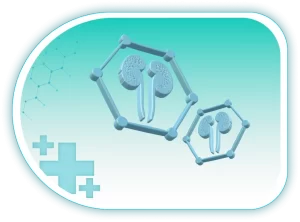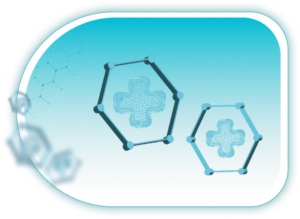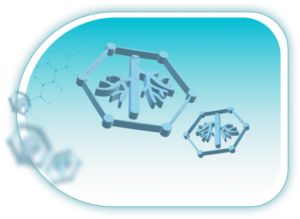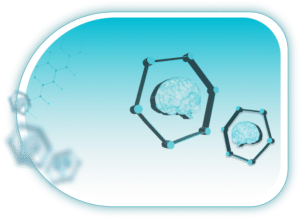Naturopathic medicine is gaining popularity as people seek more holistic and natural approaches to healthcare. Rooted in traditional healing practices and modern science, naturopathic medicine offers a comprehensive and patient- centered approach to health and well-being. In this in-depth blog, we will explore the principles and holistic approach of naturopathic medicine, shedding light on its core beliefs and how it can contribute to a more balanced and vibrant life.
The Principles of Naturopathic Medicine
Naturopathic medicine is guided by several fundamental principles that set it apart from conventional medicine. These principles form the foundation of naturopathic practice:
The Healing Power of Nature: Naturopathic medicine recognizes the body’s innate ability to heal itself. It focuses on supporting and enhancing the body’s natural healing processes.
- Identify and Treat the Root Cause: Instead of merely addressing symptoms, naturopathic doctors (NDs) seek to identify and treat the underlying causes of illness and imbalance.
- First, Do No Harm: Naturopathic treatments are designed to minimize the risk of harmful side effects. NDs prioritize therapies that are safe and non-invasive whenever possible.
- Treat the Whole Person: Naturopathic care considers the physical, mental, emotional, and spiritual aspects of an individual’s health. It takes a holistic approach to patient care.
- Doctor as Teacher: NDs act as educators, empowering patients to take an active role in their health and well-being. They provide guidance and knowledge to help patients make informed decisions.
Holistic Modalities in Naturopathic Medicine
Naturopathic medicine employs a wide range of holistic modalities to address health concerns. These modalities include:
- Nutritional Therapy: NDs use diet as a foundational element of treatment, emphasizing whole, nutrient-dense foods and addressing nutritional imbalances.
- Herbal Medicine: Botanical remedies are often used to support various health conditions. Herbal treatments may include teas, tinctures, or supplements.
- Physical Medicine: Physical therapies such as massage, hydrotherapy, and spinal manipulation are employed to promote physical healing and balance.
- Mind-Body Techniques: Naturopathic doctors may recommend stress reduction techniques like meditation, yoga, and mindfulness to address emotional and mental well-being.
- Lifestyle Counselling: NDs work with patients to identify and modify lifestyle factors that contribute to health issues, including exercise, sleep, and stress management.
Conditions Treated by Naturopathic Medicine
Naturopathic medicine can be used to address a wide range of health conditions, including but not limited to:
- Digestive Disorders: Naturopathic medicine can help with conditions like irritable bowel syndrome (IBS), acid reflux, and food sensitivities through dietary changes and digestive support.
- Chronic Pain: Physical therapies, acupuncture, and herbal remedies may be employed to manage and reduce chronic pain conditions.
- Allergies and Immune Health: Naturopathic treatments can boost the immune system and alleviate symptoms of allergies and autoimmune diseases.
- Hormonal Imbalances: Naturopathic doctors often work with hormonal imbalances, including issues related to thyroid health, menopause, and fertility.
- Mental Health: Holistic approaches, such as counselling, nutrition, and mind-body techniques, can support individuals dealing with stress, anxiety, and depression.
Collaboration with Conventional Medicine
Naturopathic medicine can be integrated with conventional medical care. Many patients choose to work with both naturopathic doctors and traditional healthcare providers to achieve comprehensive care. Collaboration ensures that all aspects of a patient’s health are considered, and treatments are coordinated for optimal results.
Naturopathic doctors are trained to communicate and collaborate with other healthcare professionals, making it possible to create a well-rounded healthcare team focused on the patient’s well-being.
Choosing a Naturopathic Doctor
If you’re considering naturopathic medicine as part of your healthcare journey, it’s essential to choose a qualified and licensed naturopathic doctor. Look for professionals who have completed accredited naturopathic medical programs and passed rigorous licensing exams.
Moreover, consider the doctor’s approach, experience, and patient reviews. A good fit between you and your naturopathic doctor is essential for effective and collaborative care.
The Future of Naturopathic Medicine
Naturopathic medicine continues to evolve, with growing recognition and integration into mainstream healthcare. Research into the efficacy and safety of naturopathic treatments is ongoing, providing a stronger evidence base for these holistic approaches.
As people seek more personalized and holistic healthcare options, naturopathic medicine is poised to play an increasingly significant role in promoting well-being and preventing illness.
Naturopathic Medicine and Prevention
Prevention is at the core of naturopathic medicine. Naturopathic doctors work with patients to identify and address risk factors long before illness strikes. This proactive approach can help individuals make lifestyle changes, optimize their health, and reduce the likelihood of developing chronic diseases.
Naturopathic doctors often emphasize the importance of nutrition as a foundation for good health. They help patients understand the impact of diet on overall well-being and guide them in making dietary choices that support their health goals. This nutritional guidance can range from weight management to addressing food sensitivities or allergies.
Furthermore, naturopathic medicine encourages regular check-ups and screenings to catch potential health issues early. By monitoring key health indicators, such as blood pressure, cholesterol levels, and hormone balance, patients can take preventive actions to maintain their health.
Through the holistic approach of naturopathic medicine, individuals gain a deeper understanding of their bodies and are empowered to take control of their health through prevention and natural healing strategies.
Naturopathic medicine offers a unique and patient-centered approach to health and healing. By understanding its principles and holistic modalities, individuals can make informed choices about incorporating naturopathic care into their healthcare plans. Whether addressing chronic conditions or seeking to maintain overall wellness, naturopathic medicine provides a valuable complement to conventional healthcare, emphasizing prevention, natural healing, and a holistic view of health.















